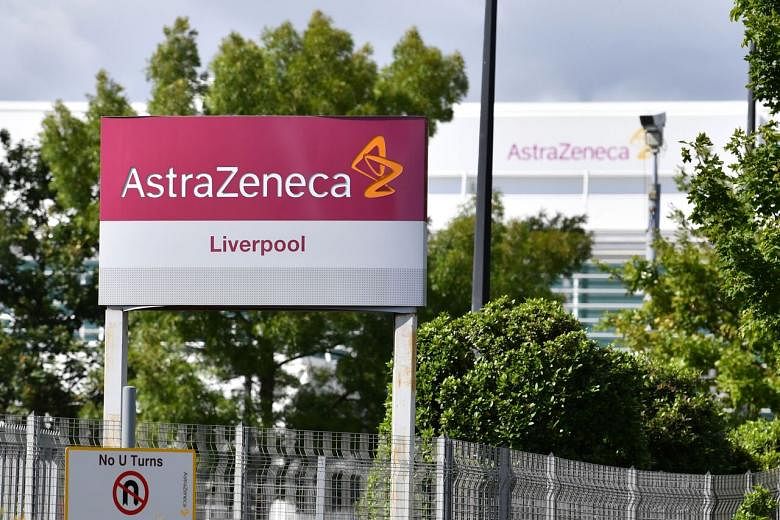LONDON • A coronavirus vaccine the University of Oxford is developing with British-Swedish drugmaker AstraZeneca showed promising results in early human testing, a sign of progress in the high-stakes pursuit of a shot to defeat the pathogen.
The vaccine increased levels of both protective neutralising antibodies and immune T-cells that target the virus, according to the study organisers.
The results were published yesterday in The Lancet medical journal.
"We are seeing very good immune responses, not just on neutralising antibodies but of T-cells as well," said Professor Adrian Hill, head of Oxford's Jenner Institute, in an interview.
"We're stimulating both arms of the immune system."
The proposed vaccine is made from a weakened version of a common cold virus that is genetically changed to make it unable to grow in humans.
The harmless virus will carry some of the pathogen's genetic material into cells to generate an immune response.
The Oxford scientists have inserted genetic material from the surface spike protein of the Sars-CoV-2 virus - a crucial tool to invade our cells - as a way of tricking the immune system into fighting back.
The platform stimulates both antibodies and high levels of killer T-cells, a type of white blood cell that helps the immune system destroy infection.
Prof Hill said that while the test does not prove the vaccine will work, "I think we're a bit more confident it should work this week than last week".
The Oxford shot elicited neutralising antibodies after a single dose, which may be an important advantage in quickly raising immunity.
Across the world, about 160 coronavirus vaccines are in various stages of development, according to the World Health Organisation, and the Oxford shot is close to the front of the pack.
US biotech firm Moderna, China's Sinovac Biotech and Sinopharm are also developing their own vaccines.
Sinopharm, which is working with the United Arab Emirates on trials, has reportedly finished construction of a new production facility with a capacity of 100 million doses on July 1.
AstraZeneca has said it may begin delivering doses to Britain as early as September.
"We want other companies to have vaccines that work as well because the world will get more vaccine sooner," Prof Hill said.
"We just feel there is an advantage of having both arms of the immune system stimulated well."
BLOOMBERG, REUTERS











